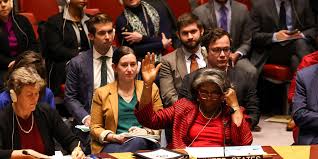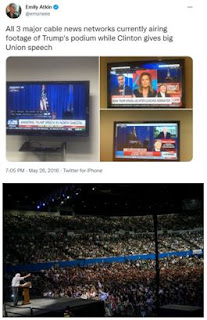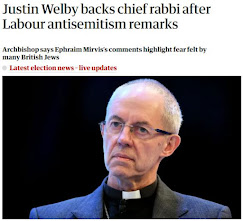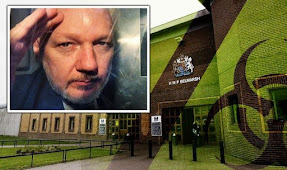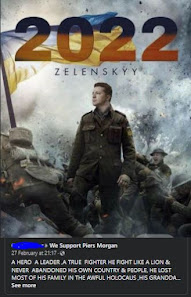 |
| St. George's Hall, Liverpool Colin Lane/Liverpool Echo |
It is Holocaust Remembrance Week 2026 in Liverpool. The 27th was the actual day. The day when prominent buildings around
the Western world are bathed in purple at night; when descendants of survivors
go into schools and take to the airwaves to remind us that unspeakable things
happened in Europe generations ago, that we must never forget, and that “never
again” must it happen. They tell us with great urgency that the scourge of anti-Semitism
is as strong as ever, as evidenced by massacres in Manchester, Sydney and
elsewhere.
This was the week that Prof. Eve Rosenhaft chose to launch for
the first time a new book she has edited for the widow of a remarkable man
wanting to share her late husband’s story. Ronald Roberts, the Lad Who
Outwitted the Nazis: From Weimer Germany to Windrush Britain is about a
man born of a Black (Barbadian) father and a White German mother in Germany in 1921.
The title alone indicates that this is one hell of a story, and having read
from it in draft form, I was thrilled when Professor Rosenhaft engaged me to
read extracts from the finished book, which draws from personal testimony,
including many, many letters. We learn for example that in 1940, Ronnie had
been captured by the Gestapo, held in an internment camp at Wülzburg,
made three futile escape attempts, but was finally liberated by the British Army
in 1945. One of the letters recalls his time working in a British-run camp in
Judenburg, Austria, not long after:
One day with about one hundred
and fifty Jews in the camp, the colonel said to me, “Ron there will be some
movement in the camp tonight, don’t let it concern you.” By then we were good friends. I knew what was
going to happen. The next morning all the Jews were missing. The Jewish Brigade
had arrived in the night and loaded all the Jews onto lorries and taken them
away. The Colonel made a phone call to Headquarters reporting the missing Jews
and replaced the phone with a big grin on his face.
It was an illegal movement in
those days, well according to the British, but if those people wanted to go to
Palestine I wasn’t going to stop them, and certainly not the Colonel. The
Colonel and I became lifelong friends until his death in the 1970s. He was a
wonderful man.
A wonderful man indeed, helping persecuted people escape to
safety.
Last week, I was privileged to honour another wonderful man
- Paul Robeson - at the Marx Memorial Library in London. He died on January 23,
fifty years ago, and on the 20th, the library invited the public to see a
display of items from their collection relating to him. One I saw was a letter
from a young Scottish man writing home from the battlefield during the Spanish
Civil War. Toward the end, he wrote:
Yesterday afternoon we had the
pleasure of a visit from Paul Robeson, his wife & Charlotte Haldane.
Robeson rendered to us many of his songs, but he gave “Ole Man River” to new
words, words of hope & struggle & not of as in the past defeatism &
helplessness. Charlotte Haldane brought us news of the British Labour movement
& the encouraging interest now being taken in the struggle against fascism
in Spain.
The library folks had invited me to contribute to their
event with some words and music. It was truly an honour to be able to recount
how Robeson had literally taken over my life since 1995, and how one particular
episode in his life in particular has uncanny and troubling parallels with today.
On a tour of Europe in 1949, he made a speech in Paris which would pave the way
for his government to silence the former national treasure. He had discussed
the absurdity of African Americans, second-class citizens in their country,
fighting against the Soviet Union, where he had been treated like a real person
for the first time in his life. The press distorted his speech, suggesting that
he said he loved the Soviet Union more than America, and by the time he got
back home later that year, he was Public Enemy #1. The campaign against him
reached its climax at the Peekskill, NY where a concert had to be cancelled
because of violence, and the rescheduled concert days later was followed by
more violence. The infamous Peekskill riots showed his country at its most
anti-Black, ant-Communist and anti-Semitic as it ever was, at its most fascist,
until now.
Robeson’s wife was part-Jewish, and his son married a Jewish
woman. He spoke Hebrew and Yiddish. The hatred being shown toward him and Jews would
have hurt all the more as a result. Just as his own father and millions after
him had fled North from the Southern states in search of safety, he understood
and supported the desire for Jews to find a haven away from their persecutors
in Europe, and, as the Peekskill example showed, America.
Coming so soon after speaking and singing at the Robeson
event at the Marx Memorial Library, participation in two launches of the Ronald
Roberts book was going to be part of a wonderful, meaningful start to 2026.
After Toxteth Library in Liverpool on Jan 29, the second place I would be
reading Ronald Roberts’s words at was going to be the Wiener Holocaust Museum
in London.
 |
| Wiener Holocaust Museum |
Was; because alas, I was told I would no longer be welcome
there, and my details were erased from the publicity. The reason? Palestine. Or
specifically, Palestine Action, and my avowed support for the non-violent
direct action campaign group opposing the genocide in Palestine. I had told Eve
to let them know of my previous pro-Palestine activity for the sake of
openness, but that turned out to be a mistake.
In the same way as Ronald Roberts was asked not to see Jews
being helped to escape to Palestine from Austria in 1945, some descendants of
Holocaust survivors are asking us not to see what other descendants are doing
in Gaza or the West Bank, or in the rest of the Middle East and beyond.
I - and thousands of others - have however chosen not to
look away, not to remain passive. Many of us (Jews included) have
been arrested. Some have been imprisoned. Some have almost died from hunger
strikes as a result of their illegal, harsh treatment by the British state. Some
have lost jobs for wearing, instead of purple, the Palestinian colours of red,
black, green and white at work. To be cancelled from reading from a book
telling a wonderful Black man’s story of survival in fascist times is a small
price to pay by comparison.

Auckland War Memorial Museum lighting after action by pro-Palestine activists. NZ Herald
Maybe one day, some eighty years from now, someone will
stand in a Palestine Genocide Library in a Gaza still being rebuilt from the
rubble, and read or sing the words of another Black man who in 2026 penned
these words in a song about his own strange times:
When the oppressed becomes the
oppressor
We’ll still find Paul on the right side
In his rich bass voice he’d declare
I’ll be no part of your genocide
I’ll be no part of your genocide


















